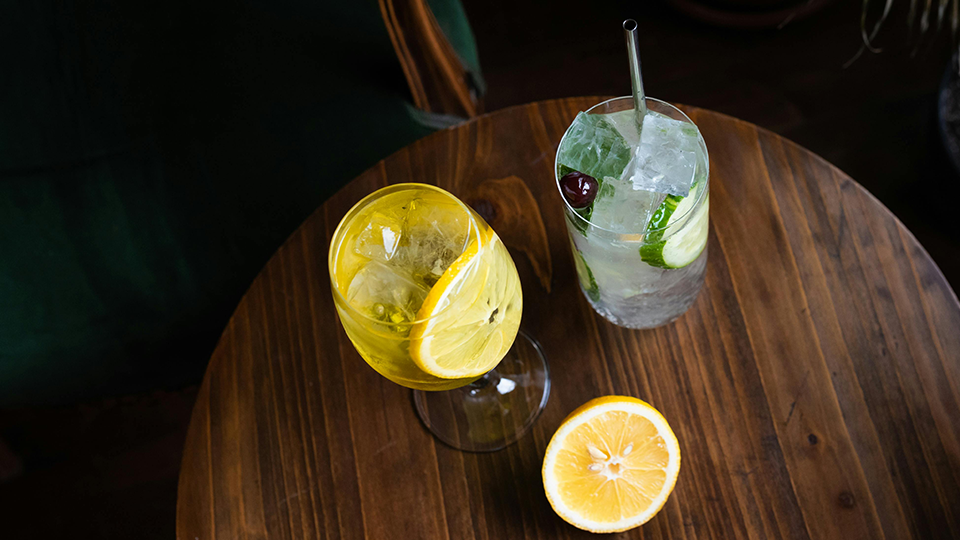Stress can bring out the fire-breathing dragon in all of us. But did you know that chronic stress can also leave your skin looking rough and wrinkly?
How Stress Influences Skin Health
Our skin acts as a protective barrier from environmental stressors and infections. Yet, it also plays an important role in the body’s response to physical and mental stress.
The body’s primary stress signaling system, known as the hypothalamic-pituitary-adrenal axis or HPA axis for short, is activated in the brain when you perceive a stressful situation. This axis of communication between brain and body results in the release of stress hormones including cortisol and epinephrine by the adrenal glands (1). When stress hormones are elevated, your entire body takes notice, including your skin.
Your skin responds to short-term stress in ways that are adaptive, such as boosting immune function. But when stress is chronic or long-term, it can lead to problems that impact the health of your skin (2). Unlike the initial boost you get from a little stress, too much stress impairs the skin’s immune function and is linked with greater risk for inflammation-related skin conditions (3). Excess stress can have serious consequences for skin health, but it also negatively impacts your complexion.
Ever notice how acne seems to show up at the worst times, particularly when you are feeling stressed? Chronic stress increases your skin’s oil production, clogging pores and contributing to more frequent breakouts (4). Your body’s natural collagen production decreases as stress hormones increase (5). Since healthy collagen production is essential for a smooth, youthful complexion, this might explain why high stress levels can add years to your appearance.
The skin’s stress response is there to help you when you need it most, enhancing immunity and adaptivity; however, it can lead to problems under chronic stress conditions.
Keys to Reducing Stress and Improving Skin Health
While stress is often unavoidable, you can protect your skin by developing healthful daily routines to better navigate stressful times. Here are four ways we can all help address stress and better support our skin and overall health:
1. Collagen
Type I collagen is the building block of your skin’s structure, making up around 80% of your skin’s dermal layer. Your body produces collagen naturally, but its production may decline from chronic stress. Collagen peptide supplementation has been shown to be beneficial for maintaining healthy, hydrated skin (6). Studies also show a benefit for improving collagen synthesis in the deep layers of the skin, helping reduce fine lines and wrinkles (7, 8). Fortunately, Collagen Elixir™ and Collagen Bone Broth are two delicious ways to support your skin with collagen peptides.
2. Adaptogens
As you nourish your skin with collagen peptides, you can also help keep it healthy with the balancing, restorative properties of adaptogens. Priming your body with adaptogens can help strengthen its capacity to resist the negative effects of stress. Adaptogens—such as ashwagandha, eleuthero, and wolfberry—are unique plants that have been studied for their abilities to act as metabolic regulators and support mental and physical performance (9). To supply your body with stress-fighting adaptogens, reach for any of the Isagenix products with potent blends of adaptogens like Ionix® Supreme, e+™, or Adaptogen Elixir.
3. Exercise
Exercise is one tried and true way to help relieve stress. Research consistently shows that people report feeling calmer after aerobic activity, and the feelings can remain for several hours after exercise (10). People who are physically fit and regularly participate in physical activity show fewer symptoms of psychosocial stress and fewer of the negative effects of stressful life events (11-13).
Additionally, exercise has direct benefits for skin health. Researchers have found that the signaling protein interleukin-15 (IL-15) is significantly increased after exercise (14). Low concentrations of IL-15 are linked to accelerated degeneration of skin cells and help drive the aging process (14). Higher amounts of IL-15, on the other hand, bolster a healthy cell metabolism and help reduce oxidative damage. So, keep regular exercise in your fight to prevent skin aging!
4. Sleep
Getting better sleep is one easy way to not only feel better but also look better. When you’re sleeping, the body is working on itself, building and mending. When you don’t get enough quality sleep, stress hormones like cortisol can become elevated, making skin more prone to the visible signs of aging including fine lines, uneven pigmentation, and reduced elasticity (5). As much as possible, it’s best to focus on getting seven to nine hours of quality sleep each night to support healthy cortisol levels.
Supplementing with melatonin around bedtime can promote a more restful night’s sleep (15). Sleep Support & Renewal™ includes ingredients like melatonin, L-theanine, valerian, tart cherry, and chamomile—all of which promote quality sleep.
Be a beauty and not a beast. When stress rears its ugly head, look and feel your best with proper nutrition, physical activity, and good quality sleep as key components of your self-care and skincare routine.
References
- Smith SM, Vale WW. The role of the hypothalamic-pituitary-adrenal axis in neuroendocrine responses to stress. Dialogues Clin Neurosci. 2006;8(4):383-395.
- Dhabhar FS. Enhancing versus Suppressive Effects of Stress on Immune Function: Implications for Immunoprotection versus Immunopathology. Allergy Asthma Clin Immunol. 2008;4(1):2-11. Doi:10.1186/1710-1492-4-1-2
- Pondeljak N, Lugović-Mihić L. Stress-induced Interaction of Skin Immune Cells, Hormones, and Neurotransmitters. Clin Ther. 2020 May;42(5):757-770.
- Yosipovitch G, Tang M, Dawn AG, et al. Study of psychological stress, sebum production and acne vulgaris in adolescents. Acta Derm Venereol. 2007;87(2):135-9.
- Chen Y, Lyga J. Brain-skin connection: stress, inflammation and skin aging. Inflamm Allergy Drug Targets. 2014;13(3):177-90.
- Inoue N, Sugihara F, Wang X. Ingestion of bioactive collagen hydrolysates enhance facial skin moisture and elasticity and reduce facial ageing signs in a randomised double-blind placebo-controlled clinical study. J Sci Food Agric. 2016 Sep;96(12):4077-81.
- Kim DU, Chung HC, Choi J, et al. Oral intake of low-molecular-weight collagen peptide improves hydration, elasticity, and wrinkling in human skin: a randomized, double-blind, placebo-controlled study. Nutrients. 2018 Jun 26;10(7).
- Asserin J, Lati E, Shioya T, et al. The effect of oral collagen peptide supplementation on skin moisture and the dermal collagen network: evidence from an ex vivo model and randomized, placebo-controlled clinical trials. J Cosmet Dermatol. 2015 Dec;14(4):291-301.
- Panossian A, Wikman G. Effects of Adaptogens on the Central Nervous System and the Molecular Mechanisms Associated with Their Stress-Protective Activity. Pharmaceuticals (Basel). 2010;3(1):188-224.
- Jackson EM. Stress relief: the role of exercise in stress management. ACSMs Health Fit J. 2013 May/Jun; 17(3): 14-19.
- Pedersen BK and Saltin B. Exercise as medicine – evidence for prescribing exercise as therapy in 26 different chronic diseases. Scand J Med Sci Sports. 2015 Nov; 25(53): 1-72.
- Gerber M, Brand S, Herrmann C, et al. Increased objectively assessed vigorous-intensity exercise is associated with reduced stress, increased mental health and good objective and subjective sleep in young adults. Phys & Behav. 2014 Aug; 135: 17-24.
- Heaney J, Carroll D, and Whittaker A. Physical activity, life events stress, cortisol, and DHEA in older adults: preliminary findings that physical activity may buffer against the negative effects of stress. J Aging Phys Act. 2014 Oct; 22(4): 465-473.
- Crane JD, MacNeil LG, Lally JS, et al. Exercise-stimulated interleukin-15 is controlled by AMPK and regulates skin metabolism and aging. Aging Cell. 2015 Aug;14(4):625-34.
- Monti JM, Cardinali DP. A critical assessment of the melatonin effect on sleep in humans. Biol Signals Recept. 2000 Nov-Dec;9(6):328-39.





